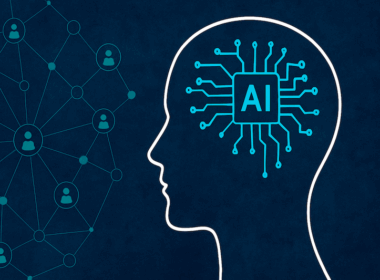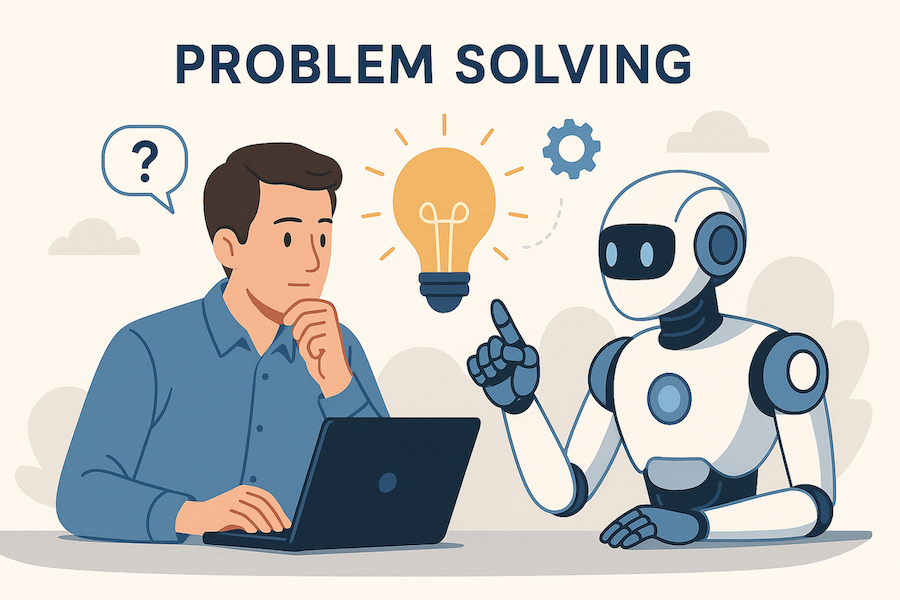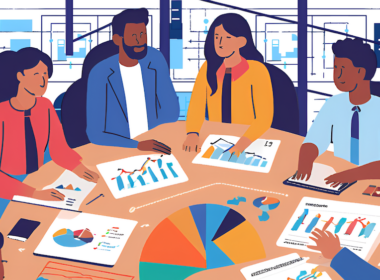We frequently hear questions like, “Will AI replace my job?” This concern echoes across a wide range of roles, from corporate boardrooms to every corner of the knowledge economy. You even hear talk of needing a universal basic income to help people survive in a world dominated by machines.
But what if we’re looking at today’s AI advancements through the wrong lens? What if AI isn’t a tool of obsolescence, but one that enhances our craft, transforms our digital landscape, and paves the way for unprecedented innovation?
Today, knowledge workers operate in what are essentially “digital factories.” Companies like Microsoft, Google, and Amazon serve as the platforms that power modern productivity, delivering services, information, and infrastructure for producing everything from emails and proposals to medical orders and sales presentations. Yet, many processes within these digital factories remain manual, repetitive, and data-heavy. Artificial Intelligence represents the next logical step in this ongoing digital industrial revolution. And if we look to history, we’ll see this transformation is part of a much larger pattern.
Lessons from Past Transformations
Learning from the past is more important than ever as AI continues to reshape work. When we examine how past technological shifts transformed industries, a clear pattern emerges: those who adapted and kept learning emerged stronger. The same applies today. By reflecting on how we’ve managed change before, what helped us grow, what held us back, we’re better equipped to navigate this new wave. It’s not just about keeping pace with AI; it’s about evolving our roles and finding new ways to contribute. The past may not predict the future, but it can certainly prepare us for it.
• Agricultural Age parallels: When plows, irrigation, and mechanized harvesters arrived, they didn’t eliminate farmers, it enabled the cultivation of far more land at lower cost. As output increased, new challenges emerged: transportation, marketplaces, distribution. Roles changed, but opportunities multiplied.
• Industrial Age patterns: Early factories depended on human hands for every bolt and stitch. As machines took over those tasks, costs dropped and demand surged. While some manual roles faded, new ones emerged in engineering, quality control, logistics, and management, areas that required human judgment.
History shows that automation shifts tasks more than it eliminates roles. Lower costs lead to higher demand, and new challenges emerge, challenges that only humans can solve. With AI, we’ll tackle those challenges faster and more creatively than ever before.
The Knowledge Factory
In today’s world, our “raw materials” are data and ideas. Our “products” are articles, designs, software, customer experiences, and business insights. Yet much of this digital work is still manual, drafting slides, cleaning data, writing first drafts, handling routine support tickets. AI is changing that by:
• Removing tasks, not roles: AI can handle transcription, first drafts, data summarization, and basic troubleshooting, freeing humans to focus on strategy, creativity, and complex problem-solving.
• Driving down costs and boosting demand: As AI amplifies digital production, businesses will invest more in content, services, and innovation, creating more opportunities for people to guide, refine, and elevate.
• Elevating the knowledge worker: As routine work is automated, the most valuable skills, critical thinking, empathy, and domain expertise—become even more essential.
Transforming the Customer Lifecycle
Take the customer lifecycle. AI’s impact is already rippling across every stage of the customer journey, from first touchpoint to long-term loyalty.
In the awareness and discovery phase of marketing, AI helps brands reach the right audiences through smarter targeting and personalized content. During consideration and decision-making portion of a sales stage, AI powers recommendations, chatbots, and dynamic pricing, making interactions faster and more tailored. After a purchase, AI enhances support and retention through predictive service, automated assistance, and deeper behavioral insights.
Here are just a few examples:
1. Lead generation & personalization: Intelligent agents can analyze prospect data, craft customized outreach, and run A/B tests at scale, while human marketers design the strategy and interpret results.
2. Onboarding & support: AI chatbots handle routine inquiries and transactions. Human agents take on complex negotiations, build relationships, and oversee AI performance to ensure ethical, high-quality service.
3. Retention & growth: AI highlights churn risks and upsell opportunities. Humans create the campaigns and strategic responses that build loyalty.
Naturally, some roles will evolve, and some may phase out. But in parallel, new roles will emerge. For instance, managing a growing fleet of AI agents is becoming a discipline of its own.
Managing the Rise of AI Agents
As organizations roll out more AI systems across departments, the need for human oversight, governance, and continuous improvement is crucial. It’s not just about deploying tools, it’s about ensuring AI aligns with company values, meets regulatory standards, and delivers trustworthy results.
This requires frameworks to monitor performance, reduce bias, update models, and ensure that people stay in the loop, especially when it comes to complex or sensitive decisions. Like any powerful technology, AI demands responsible, intentional management to realize its full potential and avoid unintended harm.
A Call to the AI Explorer
The pattern is clear: every wave of automation lowers costs, increases demand, and creates new spaces where human ingenuity shines. AI will do for digital work what machines once did for agriculture and manufacturing, freeing us from repetition and unlocking higher-value contributions.
So what does this mean for you?
• Embrace adaptability: Stay curious. Learn to work alongside AI agents. Experiment with new workflows and explore how AI can elevate your business processes.
• Hone human skills: Creativity, emotional intelligence, and strategic thinking are more important than ever, focus on the areas where machines fall short.
• Lead integration: Don’t fear AI, integrate it thoughtfully. Be a guide in shaping how your organization uses AI ethically and effectively.
The future isn’t about being replaced. It’s about being empowered. As AI Explorers, we’re not spectators, we’re the ones shaping the next chapter. Let’s harness AI to elevate our work and unlock new frontiers of innovation.








